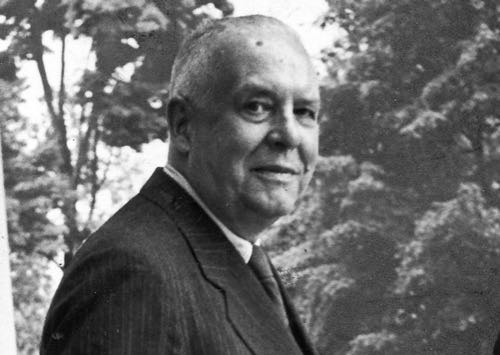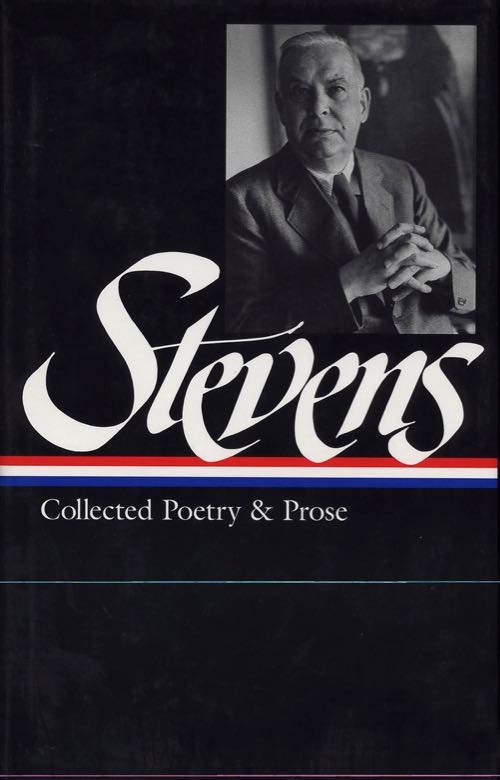One must have a mind of winterTo regard the frost and the boughsOf the pine-trees crusted with snow;And have been cold a long timeTo behold the junipers shagged with ice,The spruces rough in the distant glitterOf the January sun; and not to thinkOf any misery in the sound of the wind,In the sound of a few leaves,Which is the sound of the landFull of the same windThat is blowing in the same bare placeFor the listener, who listens in the snow,And, nothing himself, beholdsNothing that is not there and the nothing that is.
The Snow Man
Wallace Stevens
Feature Date
- May 13, 2019
Series
- What Sparks Poetry
Selected By
- Jennifer Atkinson
Share This Poem
Print This Poem

Photo:
Wallace Stevens in July 1950. (Walter Sanders/The LIFE Picture Collection/Getty Images)
Wallace Stevens in July 1950. (Walter Sanders/The LIFE Picture Collection/Getty Images)
“At the bottom of Stevens’s poetry there is wonder and delight, the child’s or animal’s or savage’s—man’s—joy in his own existence, and thankfulness for it. He is the poet of well-being: ‘One might have thought of sight, but who could think / Of what it sees, for all the ill it sees?’ This sigh of awe, of wondering pleasure, is underneath all these poems that show us the ‘celestial possible,’ everything that has not yet been transformed into the infernal impossibilities of our everyday earth.”
—Randall Jarrell
Wallace Stevens’s unique voice combined meditative speculation and what he called “the essential gaudiness of poetry” in a body of work of astonishing profusion and exuberance, poems that have remained an inspiration and influence for generations of poets and readers. Now, for the first time, the works of America’s supreme poet of the imagination are collected in one authoritative Library of America volume.
Here are all of Stevens’s published books of poetry, side-by-side for the first time with the haunting lyrics of his later years and early work that traces the development of his art. From the rococo inventiveness of Harmonium, his first volume (including such classics as “Sunday Morning” and “Thirteen Ways of Looking at a Blackbird”), through “Notes Toward a Supreme Fiction,” “Esthétique du Mal,” “The Auroras of Autumn,” and the other large-scale masterpieces of his middle years, to the austere final poems of “The Rock,” Stevens’s poetry explores with unrelenting intensity the relation between the world and the human imagination, between nature as found and nature as invented, and the ways poetry mediates between them. The volume presents over ninety poems uncollected by Stevens, including early versions of often-discussed works like “The Comedian as the Letter C” and “Owl’s Clover.”
Also here is the most comprehensive selection of Stevens’s prose writings. The Necessary Angel (1951), his distinguished book of essays, joins nearly fifty shorter pieces, many previously uncollected: reviews, speeches, short stories, criticism, philosophical writings, and responses to the work of T. S. Eliot, Marianne Moore, William Carlos Williams, and other poets. The often-dazzling aphorisms Stevens gathered over the years are included, as are his plays and selections from his poetic notebooks. Rounding out the volume is a fifty-year span of journal entries and letters, newly edited from manuscript sources, which provide fascinating glimpses of Stevens’s thoughts on poetry and the creative process.
The volume also contains explanatory notes, a detailed chronology of Stevens’ life, and an essay on textual selection.
Poetry Daily Depends on You
With your support, we make reading the best contemporary poetry a treasured daily experience. Consider a contribution today.




